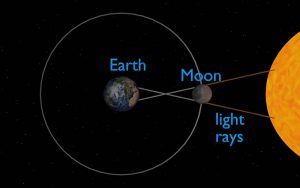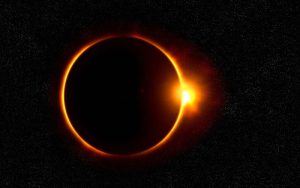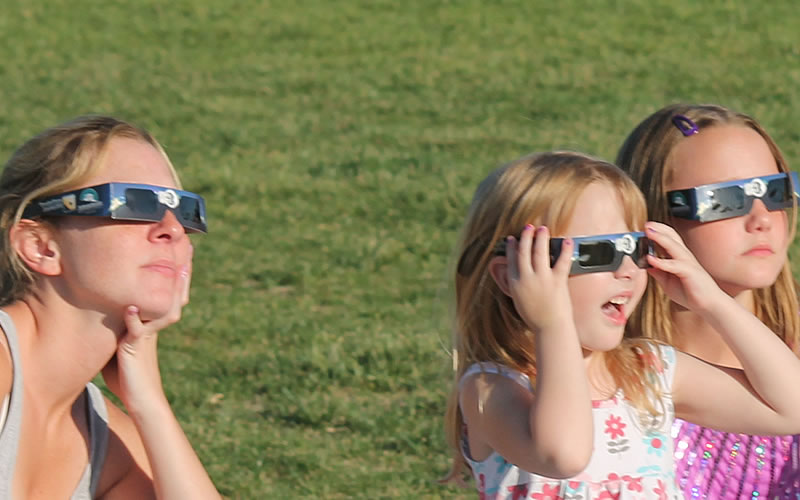By Avery and Ellen Brack, special to Charleston Currents | With a total eclipse just two weeks away, there are a lot of cool places to watch it.
- College of Charleston. NASA will be basing its national broadcast of the eclipse at the College of Charleston’s Rivers Green behind the Addlestone Library. In the Charleston area, the eclipse will begin just after 1 p.m. and end three hours later. The moon will cover the sun completely for about two minutes starting at 2:46 p.m. You can learn more about the college’s celebration here.
- Riley Park. The city’s minor league baseball park will open at 1 p.m. so you can see the eclipse before a game against the Augusta GreenJackets that starts at 4:05 p.m. Learn more.
- Patriot’s Point. You can watch the eclipse as it leaves the east coast aboard the USS Yorktown at Patriots Point Naval and Maritime Museum, which has teamed with ABC News 4 to offer a 40-foot screen to view a broadcast of the event. For the price of a museum admission, guests also will enjoy a band, games and more attractions. The first 3,000 people will get free solar glasses. Gates open at 9 a.m. More.
- Eclipse at the Bend. The Post and Courier, the City of North Charleston and The Bend will offer a “Total Solar Eclipse” experience at the venue, 3775 Azalea Drive. The free event is 12 p.m. to 4 p.m. and features a band, a live feed from NASA, robotics, snacks and more.
- Charleston County Parks is having several programs in its parks, such as a master naturalist presenting at Caw Caw Interpretive Center about what animals are experiencing. See the alternatives here.
What exactly is an eclipse?
 An eclipse occurs when the moon goes in between the sun and the earth. The moon casts a shadow on the earth. An eclipse happens somewhere on earth every 12 to 18 months, but we usually don’t see them because they happen in other places in the world.
An eclipse occurs when the moon goes in between the sun and the earth. The moon casts a shadow on the earth. An eclipse happens somewhere on earth every 12 to 18 months, but we usually don’t see them because they happen in other places in the world.
The reason that the Aug. 21 solar eclipse is important to us is because it is total eclipse.
“The total solar eclipse on Aug. 21 is particularly rare because it’s the first time the path of totality exclusively crosses the continental United States from coast to coast since June 8, 1918,” according to ABC News. “It’s also the first continent-wide eclipse to be visible only from the United States since 1776.”
On Aug. 21, the moon will start going over the sun at 1:07 p.m. and will pass it by 4:02 p.m.. The moon will fully cover the sun for only about two and a half minutes.
Wear special safety glasses

When the eclipse is going on, you need to wear special glasses to see it. If you look at the eclipse without the glasses, you could get ‘eclipse blindness’ or retinal burn. You cannot have homemade glasses or dark sunglasses because you can still get retinal burn. That is why you need solar glasses.
You can get these glasses at 6,800 certified libraries across the country. Or you can look for them in local stores or buy them online. Hurry — supplies may be limited.
Avery Brack, 13, is a student at Charleston County School of the Arts. Ellen Brack, 10, attends Charles Towne Montessori.
- Have a comment? Send to: editor@charlestoncurrents.com




 We Can Do Better, South Carolina!
We Can Do Better, South Carolina!

























2 Comments